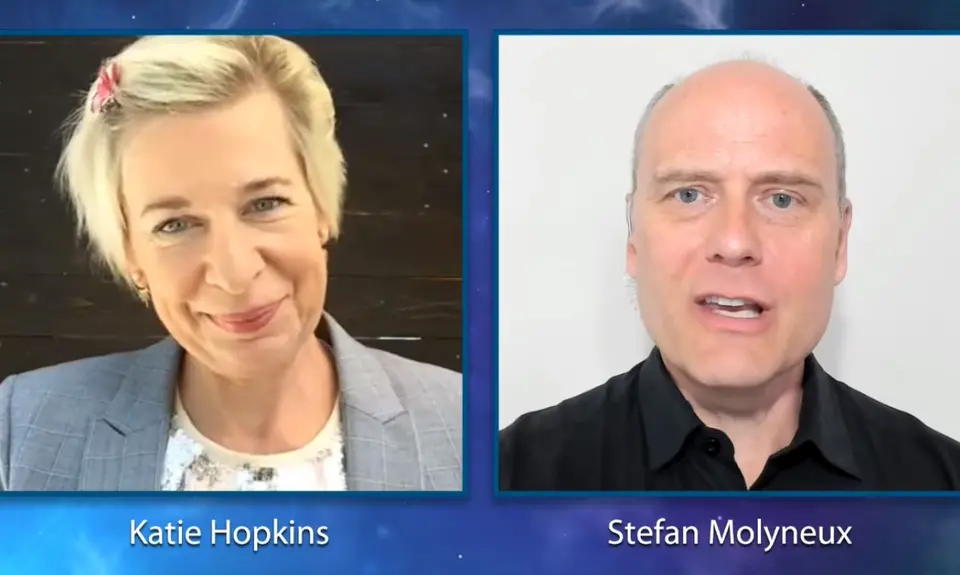Far-right activist Katie Hopkins appeared on a popular right-wing YouTube channel this weekend, where she declared that “multiculturalism means that we all die together” and appeared to justify Apartheid in South Africa by comparing it to border walls meant “to keep the things that we love safe.”
In a video uploaded by far-right podcast host Stefan Molyneux on Saturday, Hopkins discussed free speech issues in the United Kingdom and her recent trips to South Africa Africa to aid the country’s white nationalists in promoting the false idea that white people are the subject of a genocide in the country. As part of this discussion, Molyneux and Hopkins teamed up decry multiculturalism.
“What happened was, ‘Well this group is offended by this, and this group is offended by this, and this group is offended by this, so you can’t say this, you can’t say that, you can’t say the other.’ And the most aggressive groups tend to get their way and the nicest, most pleasant, most rational, most abstract groups tend to get plowed under,” Molyneux said. “It really was almost the exact opposite of what was promised.”
“I think so,” Hopkins replied. “I think multiculturalism—when I think of the definition of it now—multiculturalism means that we all die together.”
Hopkins said that she was frustrated that people would point out that Muslim people have been among the victims of some terror attacks in Europe, “as if that kind of makes it OK.”
“Multiculturalism means they get blown up too, so, therefore, someone like me, a Christian conservative, has no right to complain because look right there, lying there without their legs and arms, that’s a Muslim so, therefore, we’re all in this together. Well you know, that’s never been my understanding of how we improve a society—that we embrace everybody so that we all get blown up together,” Hopkins said.
Later on in her discussion with Molyneux, Hopkins took a tangent to compare Apartheid in South Africa to border walls.
Hopkins said that a Swedish firefighter had told her he was building a taller fence around a fire station to prevent immigrants from taking equipment and “stealing the fuel” from the station’s fire trucks. Hopkins said that the firefighter told her the station was building a taller wall “to keep the things that we love safe.”
“I wonder about that whole thing about, ‘Are walls to keep people out or are walls to keep the people we love in,' is that the new model? And in many ways, Apartheid in itself was a wall. It was a way of dividing two types of people. So I don’t know, with the wall thing, but I do think walls to keep people in—I can see us moving to gated communities in Eastern Europe as we move across,” Hopkins said.
This embedded video contains two clips from the original video uploaded to Molyneux’s YouTube account, which was more than 50 minutes long.





